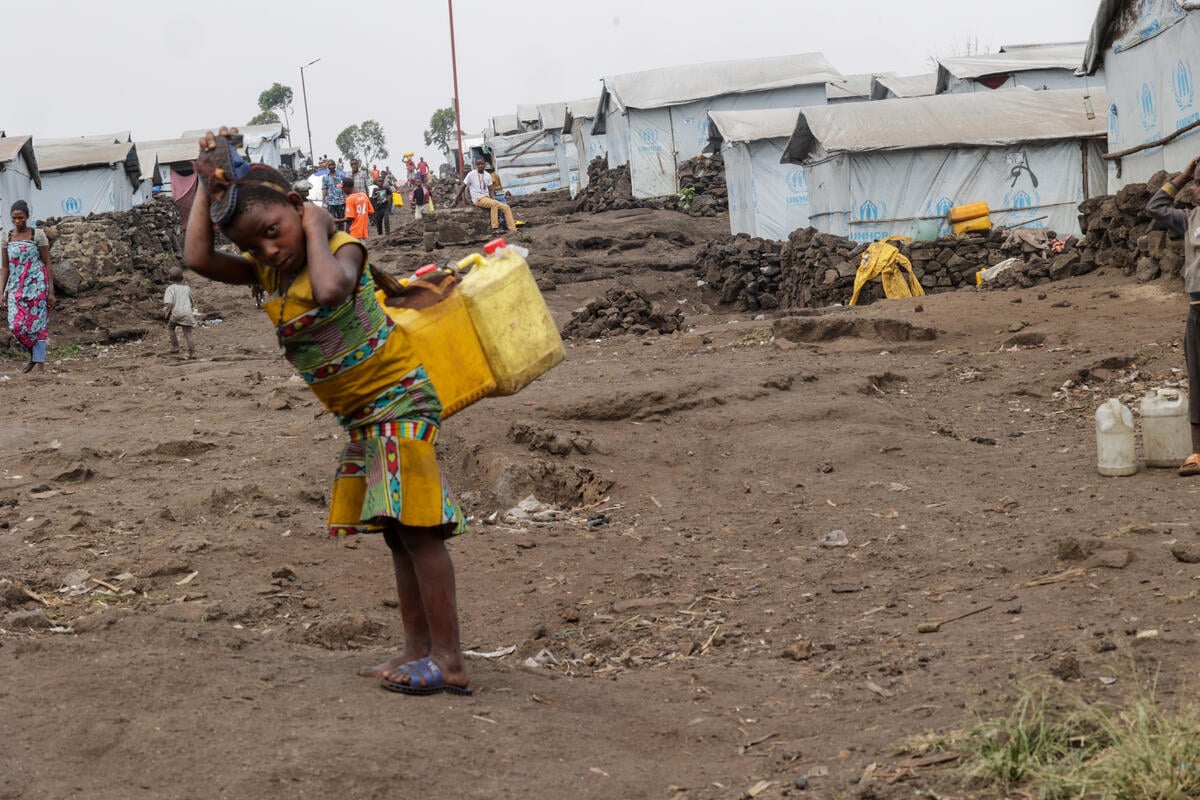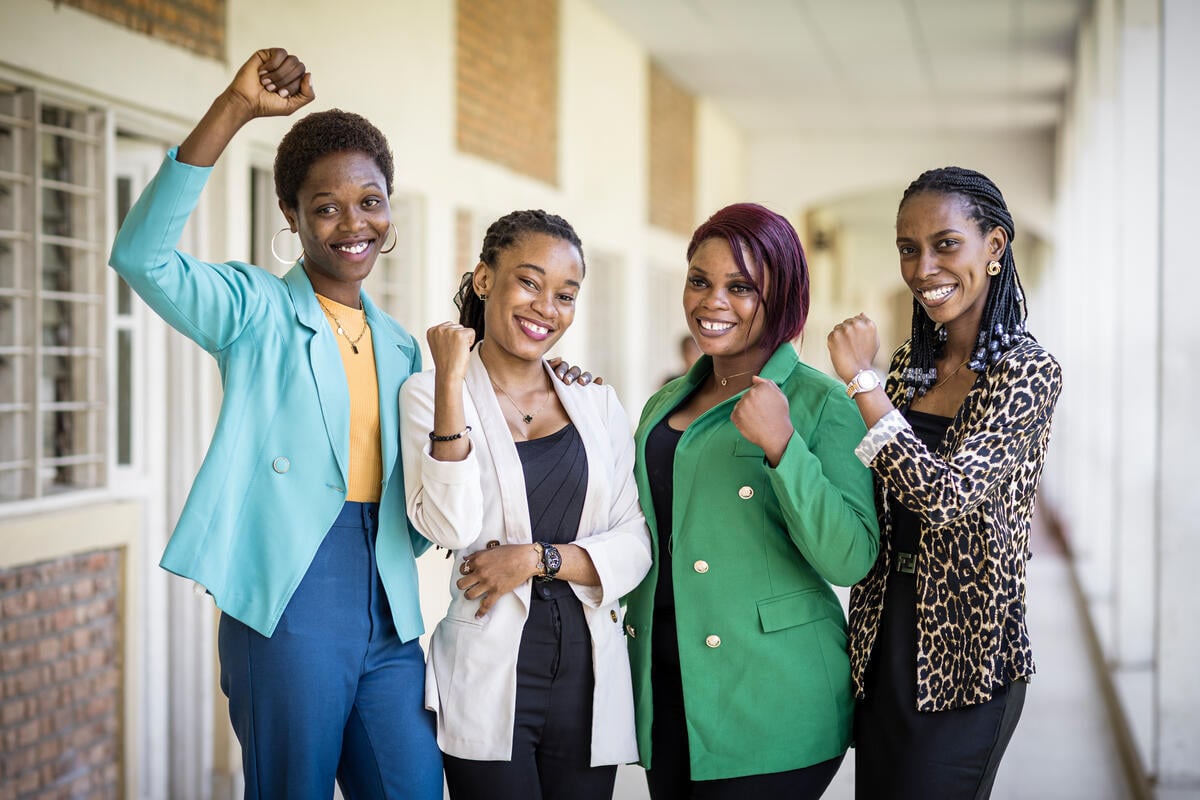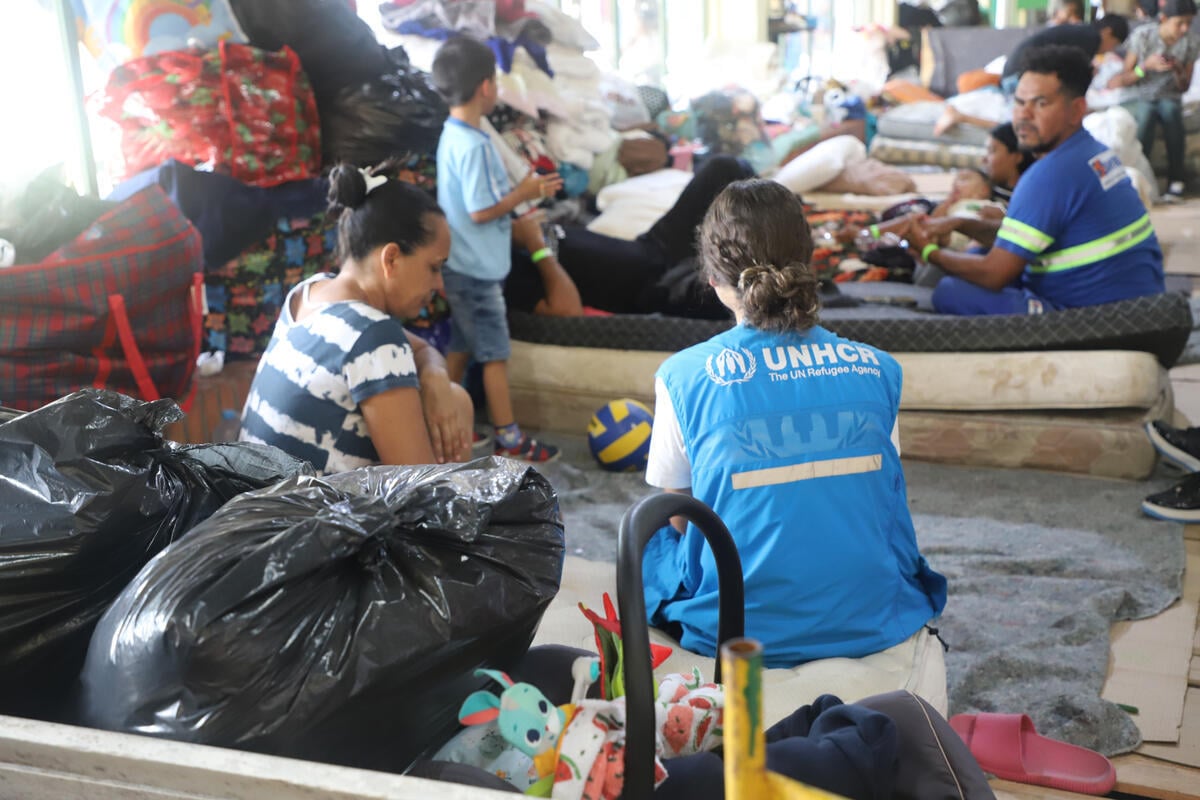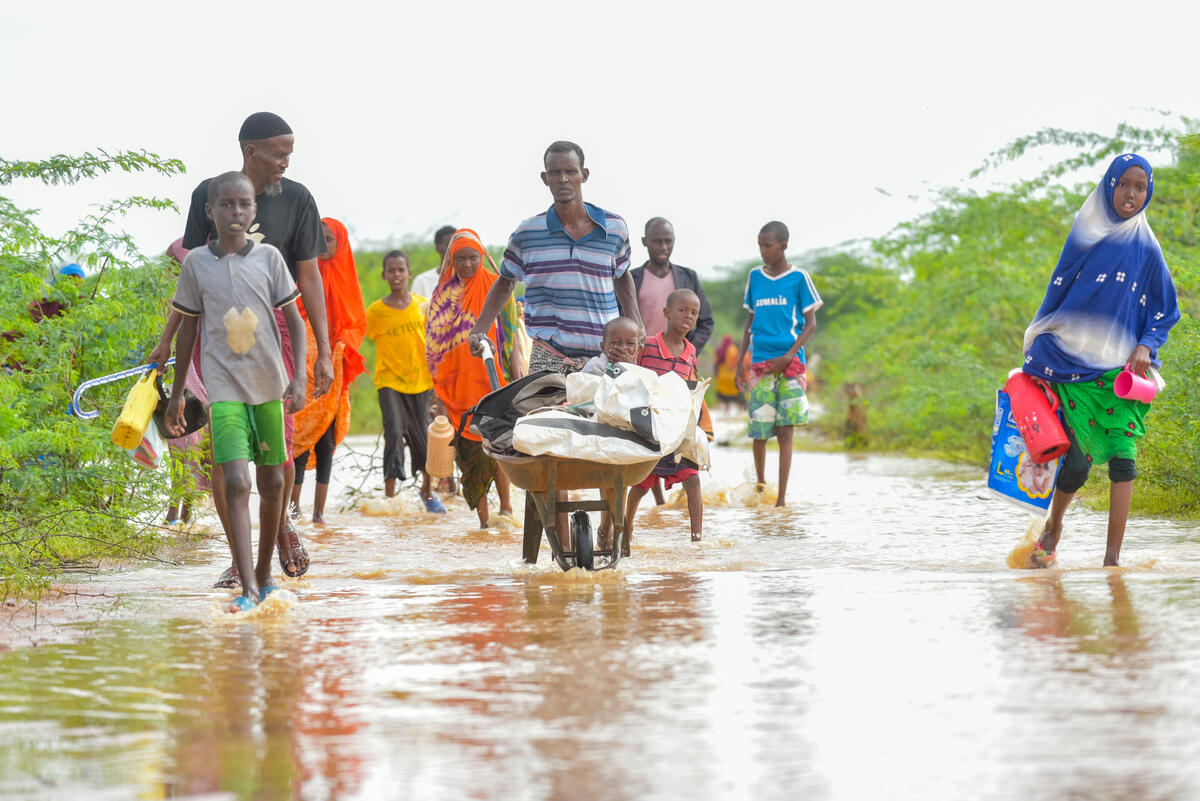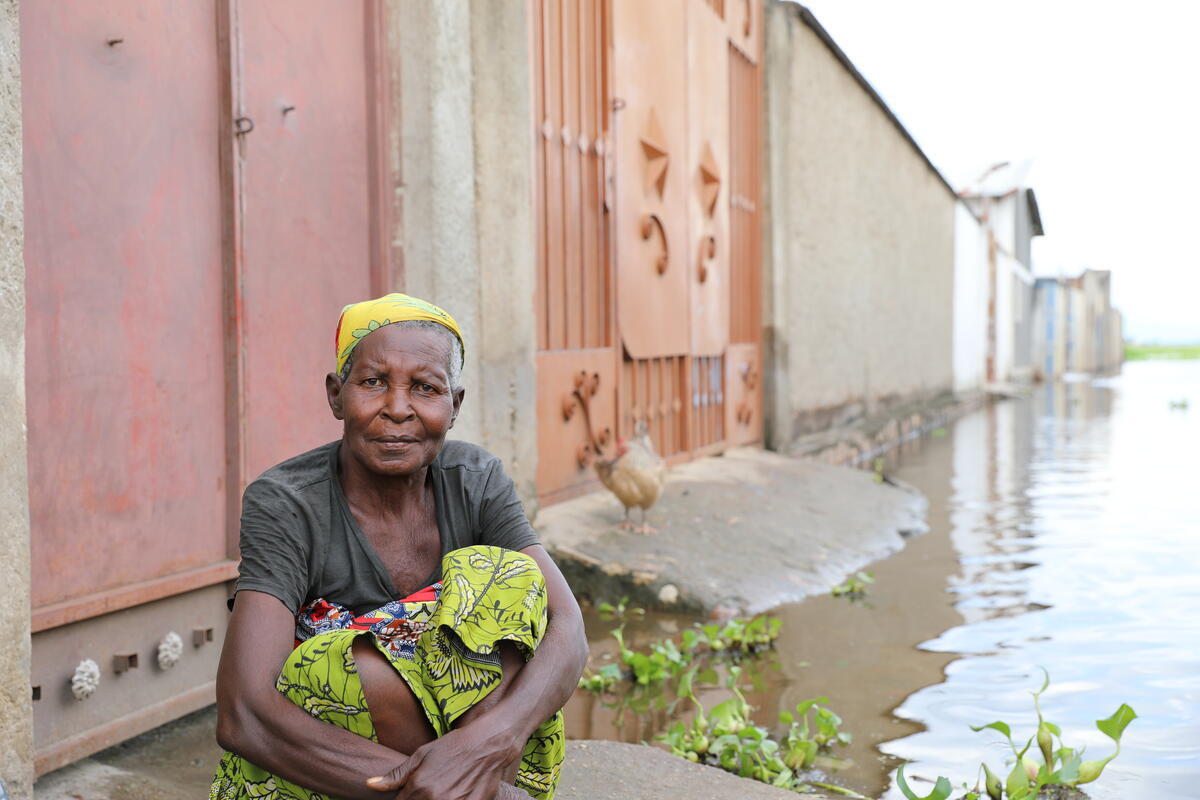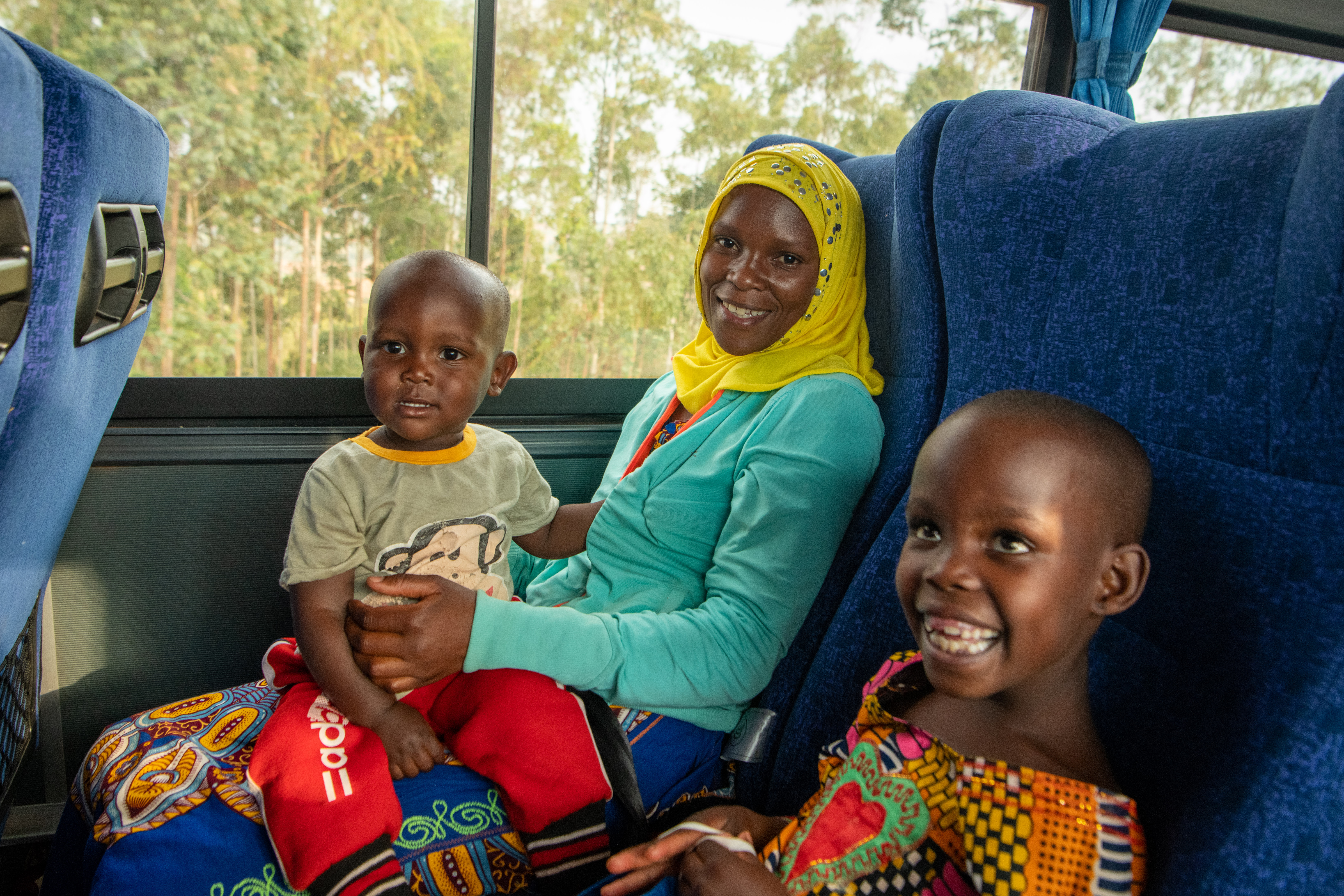Baggies striker from Burundi keeps on course for England call up
Baggies striker from Burundi keeps on course for England call up

LONDON, United Kingdom, July 3 (UNHCR) - After a cracking season in the English Premier League, 20-year-old West Bromwich Albion striker Saido Berahino narrowly missed selection for England's World Cup squad. But the former refugee can be proud of his achievements barely a decade after fleeing inter-communal violence in his native Burundi and finding shelter in the United Kingdom.
The 1993-2005 conflict in Burundi left an estimated 300,000 people dead, including Saido's father. Saido decided in 2003 to try and join his mother, who had arrived in the United Kingdom two years earlier. "I was scared. I remember I couldn't sleep, I couldn't eat," he said of that time.
Saido made the long journey to the UK with the help of a family friend. "It was really tough," he said, pausing to gather his thoughts. "I didn't really understand what was going on because I was too young, but certain things, they've scarred me."
They travelled through Tanzania to Kenya, often on foot, before eventually reaching Britain, though Saido is hazy on the details. The promised reunification with his mother had to wait until a DNA test confirmed Saido was her son. It was a difficult time for the terrified 10-year-old boy, who was unable to speak a word of English.
"I remember the first time I actually got to see her," he recalled. "I was at a police station, we were allowed to see each other for like an hour, just before they did the DNA, and that was the hardest thing ever."
Saido began his new life in Birmingham, England's second largest city. "When I came to Birmingham, I only had my mum. I had no one else to really speak to because I had no friends. I remember the first part of primary school was really tough because I couldn't understand anything."
Things would soon change; Saido's primary school provided him with an English tutor. And he soon began to display his talent at football, which he had mastered in Burundi with "balls made out of plastic bags and tape." Playing helped him make friends too.
And half a season with Sunday league team Phoenix United was all it took to attract the attention of West Bromwich Albion, one of the largest football clubs in the country. The club, nicknamed the "Baggies," have helped Saido develop as a player and as a person.
"I'd train with other kids, made some new friends, met a lot of people, had a lot of help from coaches. There were a lot of people that were influencing my life to [help me] become the best I can be. They really helped me a lot in that sense. They've helped my family as well so I thank them a lot."
Having represented England youth at every level, Saido dreams of repaying his adopted country at a major tournament. The World Cup came slightly too soon, but many are predicting his time will come soon. Following England's failure in Brazil, new faces may come to the fore as the European Championship looms in 2016.
But despite Saido's new loyalties, Burundi remains close to his heart. He hopes to one day return and contribute to a country that remains amongst the world's poorest. Premier League fame has in no way diminished his love for the place he calls his "motherland." He recently helped raise funds for UNHCR projects.
His story underlines what a catalyst for integration football, and sport in general, can be. It can help to counteract psycho-social problems, including trauma, that young refugees may have developed when forced to flee their home. The positive impact sport makes toward physical fitness and mental well-being can be a vital contribution to physical and emotional development.
"Football really helped me a lot and can help anyone if they really love it and they've gone through a lot. When you're back from your home country and you come to a new environment, with new people, it helps you to connect because football is universal," Saido said.
His positive attitude has played a big role in helping him to overcome adversity and he remains optimistic. "Always follow your dream, never give up," said Saido, when asked if he had any advice for refugees. "Life will always be great when you keep believing, pushing on and following your dreams."
By Charlie Yaxley in London, United Kingdom

